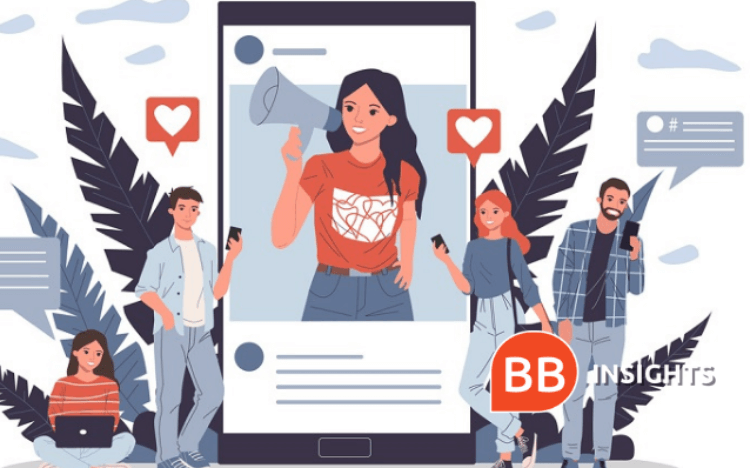From American popstar Olivia Rodrigo collaborating with US President Joe Biden to the Indonesian government turning to social media influencers, governments and healthcare institutions have started leveraging celebrity endorsements to fight vaccine hesitancy. But is it working?
The impact of celebrity endorsements
Governments turning to celebrities or influencers to encourage Covid vaccine uptake may seem like an odd choice. Yet there’s evidence that celebrities may play a crucial role when it comes to promoting positive messages about vaccines, especially amid vaccine hesitancy.
A 2019 Indonesian study, published by the National Bureau for Economic Research, found that tweets about vaccines that came from a celebrity were much more likely to be liked or retweeted than the same tweets seen by the same users that didn’t come from celebrities.
“Generally speaking, people are fairly skeptical about advertising and marketing efforts,” explains Tim Calkins (pictured right), clinical professor of marketing at Northwestern University’s Kellogg School of Management.

To some, influencers and celebrities may appear more trustworthy, relatable, and authentic than scientific and medical spokespeople. “What an influencer or celebrity can do is they can get people to pay attention, and they can bring credibility to the message,” Tim adds.
Celebrities or influencers offer a means of de-politicizing debates about vaccines, which can potentially help audiences to look at the issue from a new, fresh perspective. There’s also the added benefit of the extended reach that accompanies high profile, influential figures, which can provide a much-needed boost to marketing campaigns.
“Many influencers speak the same language of the majority of people and can create a more effective way to communicate something important instead of having a traditional TV commercial asking us to get the vaccine,” believes Alessandro Bogliari, co-founder, and CEO of The Influencer Marketing Factory.

Tailoring the messages to the right audience | Celebrity endorsement examples
Choosing a celebrity or influencer to promote vaccines is not a simple task. Governments and health institutions need to be strategic and intentional in their approach or risk further losing audiences’ trust by choosing the ‘wrong’ person to front their message.
Claudia Kubowicz Malhotra (pictured right), clinical professor of marketing at the University of North Carolina’s Kenan-Flagler Business School, notes the need to tailor messages to the target population. “In general, and for Generation Z specifically, if there is an authentic connection between the celebrity and the endorsement, it can be very well received,” she says.

In the US, younger Americans were found to be less likely to get vaccinated than older age groups, according to two studies by the Centers for Disease Control and Prevention. While this could be attributed to several reasons, vaccine uptake has still been considerably slower among young people in the US.
There was a clear intention behind Joe Biden working with Olivia Rodrigo to target vaccine marketing towards the younger US population. Similarly, when British actor and writer Adil Ray became concerned about the high rates of vaccine hesitancy among Black, Asian, and minority groups in the UK, he enlisted a group of celebrities from these backgrounds to feature in an advert that was broadcast across several television networks.
Geeta Menon (pictured below, right), professor of marketing at New York University’s Stern School of Business, agrees that using celebrity influencers can be a great way to access certain population groups. “It’s important to disconnect vaccines from politics. It shouldn’t be about your political leanings,” she says.

Once governments and health experts have decided on a specific demographic to target, it’s not only about matching the age or ethnicity of the influencer to the target group, it’s also about conjuring a positive brand image around Covid vaccines.
Crafting a good brand image involves things like ensuring the filming and promotion of the message is done in a way that’s authentic and informative at the same time.
“When you’re aligning the vaccine with a celebrity, you're taking vaccines from being a brand that’s aligned with science and the pharmaceutical industry to being a brand that's aligned with somebody who is young, contemporary, and interesting, and all of that has a big impact on how people see and understand vaccines,” notes Tim from Kellogg.
The downsides of influencer marketing
There are many positives for governments and health institutions using celebrity endorsements to promote vaccines, but there’s also a risk that doing so could damage their credibility.
“Governments are meant to get things done. But not all people trust governments,” says Geeta from NYU Stern, adding that the 2020 US elections exemplified that the country is deeply divided along party lines.
And while careful consideration can go into selecting the ‘perfect’ influencer to head up vaccine messaging, there’s no way to control influencers’ future behavior or actions that may contradict what they’ve been promoting.

Moreover, while Dr Kevin Schulman (pictured right), professor of medicine at Stanford University School of Medicine and professor by courtesy of operations, information, and technology at Stanford GSB, believes that celebrity endorsements can be helpful when organizations tailor the language of the campaigns to the target population, he notes a need to be cautious about strategy.

When governments and health experts cannot reach certain members of the public who are skeptical about the Covid vaccine, there’s an urgent need to use different and innovative approaches to reach them.
Although it’s difficult to measure the exact success of influencer and celebrity endorsements on Covid vaccine uptake, using them as part of a vaccine marketing campaign can be a good thing, if done right. There are obviously risks, but any positive associations that governments and health experts can conjure about the vaccine may go some way to encouraging those less inclined to get vaccinated to do so.
Next Read:
From Startup To $67 Billion Company | 3 Lessons From Moderna's Vaccine Success
BB Insights explores the latest research and trends from the business school classroom, drawing on the expertise of world-leading professors to inspire and inform current and future leaders
RECAPTHA :
ae
e5
b9
1c




 4
4 



Comments.